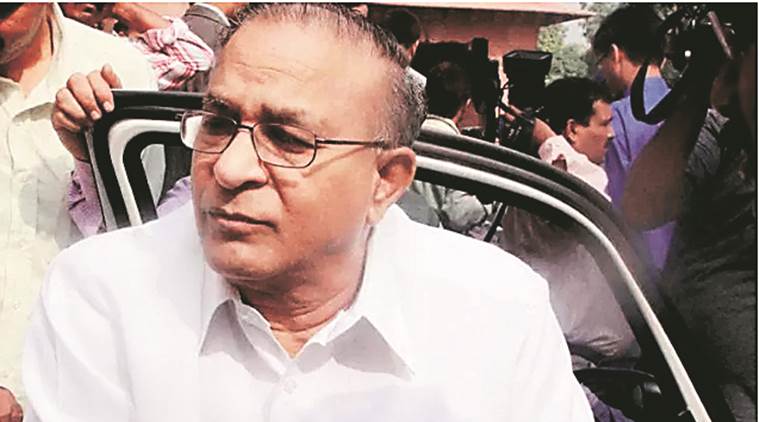
“‘Ism’ is a subtle suffix, so discreet, so vestigial it is as a word-ending that one can miss it altogether; as in alcoholism and altruism, as in nudism or nihilism. So totally as an appendage to the word to which it is joined, ‘ism’ curls into itself like the human tail-bone. It is there, but we do not see it…”
From Ten Ideologies, his most recent book and an exposition of several ideologies in the world, these are not lines one would expect a six-time MP and four-time MLA of our times to have penned. But for anyone who has spent any time with him, this is vintage Sudini Jaipal Reddy.
At the apogee of the Janata Dal days, in 1997-98, Reddy knew exactly what to tell inquisitive reporters. If there was a crisis in the United Front (UF) government, a solemn Reddy would say, “I am here as the spokesperson of the Janata Dal, not the UF.” When the Janata Dal hit turbulence, he would brush off queries by saying exactly the opposite: “I am here as the government spokesman, not the party’s.” Those were days when reporters jostled with ministers emerging from the Prime Minister’s residence, before security, centralisation and fencing got in the way.
Reddy’s ability to get people talking and debating — recognising that these are the essence of politics — made him a natural spokesperson of the cause he represented. As spokesperson for the Congress, he was perhaps amongst the last of the tribe before the job required one to be just a smart quipper, with lines programmed for TV bites alone.
It was Reddy’s stint as Minister of Information and Broadcasting during the United Front days that saw the setting up of the Prasar Bharati, aimed to be an independent state broadcaster with the promise of information as a public good.
Kalwakurty in what is now Telangana. He went on to be there for four terms, from 1969-1984.
A Mahbubnagar man, it took a lot to stop Jaipal Reddy from doing anything he had set his sights on. He started as a students’ union leader and headed the Andhra Pradesh Youth Congress. His erudition and learning were evident from the start, as fellow students remember him arguing in the Rajiah canteen of Nizam College, quoting French and English philosophers. Despite being affected by the lines that divided the Congress in the state after the split following Indira Gandhi’s ascent, he stayed with the party, till the Emergency imposed by Indira Gandhi drove him to the Janata Party and then to several Janata Dal factions.
A minister in the Janata government and then in the United Front, he rejoined the Congress party, to serve in both the UPA-1 and 2 Cabinets. His stint as Minister for Petroleum was more interesting than the government of the day would have wanted it to be, as he is said to have refused pressure to allow a leading industrial group to have its way. He was eventually shifted out.
Reddy was a Rajya Sabha MP for two terms and in the Lok Sabha five times. In 2004, he was elected from Mriyalaguda Lok Sabha seat and in 2009 from Chelvella.
However, the squeezing out of the Congress from Andhra Pradesh’s politics — after the state’s split — left him adrift, with no room for him to be of as much consequence as he might have been in his final years.
A man of letters, who knew his Telugu literary worthies as much as he valued the European greats, he was among the finest orators of his time in Parliament.
In 2002, his expression “humungous fraud”, in the context of the ruling BJP’s bid to have a shilanyas in Ayodhya in 2002, created an uproar befitting the word. Two NDA MPs asked for the word to be expunged. It was one of Lok Sabha’s most engaging moments as Opposition MPs struggled to explain what the word meant while MPs on the treasury benches protested against the phrase.
The House was hurriedly adjourned by Deputy Speaker P M Sayeed. But two days later, Reddy came right back and, referring to then PM Atal Bihari Vajpayee, said, “There is a humungous hiatus, a gigantic gap and a gargantuan gulf between his public image and private reality.”
S Jaipal Reddy never tired of making a case for ‘ideology’ in politics, and vociferously defended his own shift between parties, explaining carefully how it meant he stayed on the same side of the arc of progressive politics, and was a bid to just be more effective.
Meanwhile, ‘humungous’ stayed on in Parliament records.